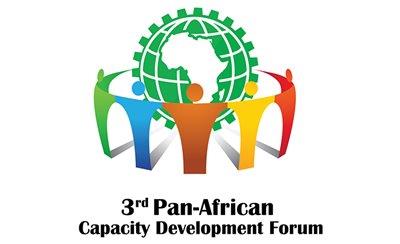
CDF3 aims to achieve “structural transformation” of African institutions by securing long-term commitments to capacity development initiatives.
The third Capacity Development Forum (CDF3) takes place in Harare, Zimbabwe from 2 to 6 May 2016. The Forum is part of the 25th Anniversary celebrations of the African Capacity Building Foundation (ACBF). Established in 1991, ACBF has a continental mandate to build sustainable capacity in Africa and in line with this pan-African vision, CDF3 will be held under the theme ‘Developing Capacity for Africa’s Economic and Social Transformation’.
Policymakers, senior government officials, representatives from multilateral and bilateral institutions, private sector and civil society delegates and the media will convene at the Harare International Conference Centre to discuss the various capacity dimensions of Agenda 2063. These dimensions include private sector development and partnerships as key tools for Africa’s economic and social transformation. Through a series of interactive plenary sessions and side events, the forum will explore the major challenges and opportunities associated with capacity development on the continent, including youth employment, public, private and civil society engagement and domestic resource mobilisation.
Alongside the CDF will be the ACBF 25th Anniversary Celebrations, hosted by the Government of Zimbabwe. Zimbabwe has hosted the ACBF headquarters since inception. Topics for discussion at the High Level Panels to mark 25 years of capacity building in Africa will include mechanisms for harnessing commitments of governments and stakeholders towards the capacity development agenda and how best to create effective national development plans, built on shared experiences.
Speaking ahead of the Forum, ACBF Executive Secretary, Professor Emmanuel Nnadozie said: “We are delighted to welcome several Pan-African organisations, business leaders, non-governmental actors, public sector representatives and parliamentarians as well as representatives of academia and our partners from the multilateral and bilateral development agencies to this important event. This is the third Capacity Development Forum we are hosting. The first one was held in Bamako, Mali in 2001 and resulted in the adoption of a declaration and a draft resolution, promoted by His Excellency Omar Bongo Ondimba, President of Gabon, submitted to the African Union (AU), urging it to adopt a resolution on capacity building. The first ordinary session of the African Union Assembly held in Durban, South Africa, the following year proclaimed the period 2002-2011 as the “Decade for Capacity Building in Africa”.
CDF2 was subsequently held in Maputo, Mozambique in 2007. The Forum accessed the progress made in capacity development in Africa, addressed capacity building for post conflict countries, examined Africa’s capacity for growth and governance performance, capacity utilization, retention and use of African diaspora communities as development actors. CDF2 also provided a unique opportunity to lobby non-African donors to provide support to ACBF.
Chair of the ACBF Executive Board, Prof. Callisto Madavo added: “We are delighted to be holding the third Capacity Development Forum in on our 25th year. Our 25th Anniversary presents us an opportunity to celebrate and appreciate the capacity building milestones achieved over the years. Through CDF3 we hope to analyse and devise ways to address the critical capacity development challenges, proposing practical solutions to financing capacity building efforts in Africa in support of implementing Agenda 2063 and Sustainable Development Goals (SDGs). Ultimately, our goal is to achieve a “structural transformation” of African institutions by facilitating knowledge-sharing and experiences on capacity development and securing long-term commitments to capacity development initiatives”.
For more information on the 3rd Capacity Development Forum and ACBF’s 25th Anniversary, please visit http://www.acbf-pact.org/cdf
END//
For more information, please contact:
Susan Mwiti,
Communication Consultant
The African Capacity Building Foundation (ACBF)
2 Fairbairn Drive, Mt. Pleasant
P.O. Box 1562
Harare, Zimbabwe
Tel. +263 4304663, 0782 762 544
Email: [email protected]
Note to editors
About the African Capacity Building Foundation
Established in 1991, ACBF builds human and institutional capacity for good governance and economic development in Africa. To date the Foundation has empowered people in governments, parliaments, civil society, private sector and higher education institutions in more than 45 countries and 6 regional economic communities. ACBF supports capacity development with grants, technical assistance and knowledge across Africa.
The establishment of ACBF was in response to the severity of Africa’s capacity needs, and the challenges of investing in indigenous human capital and institutions in Africa. ACBF interventions are premised on four principles: the centrality of capacity to the development process in Africa; the critical role of a partnership and demand driven approach in tackling capacity challenges; African ownership and leadership in the capacity development process; and a systematic, sequenced and coordinated approach to the capacity development process.
For further information go to: www.acbf-pact.org





